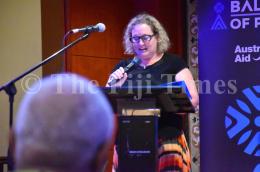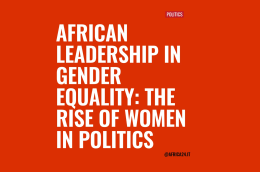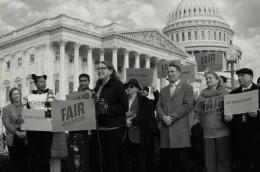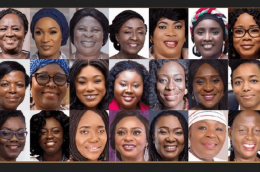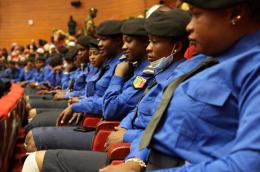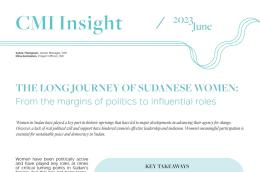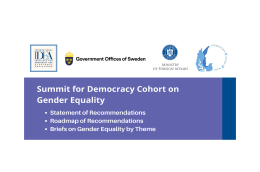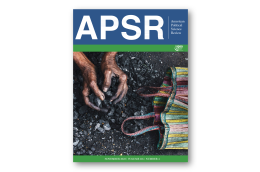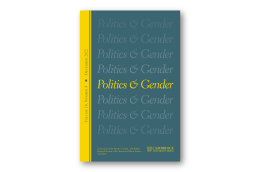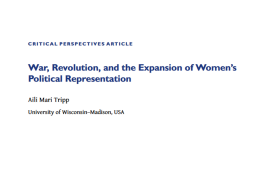Women's Leadership
Main navigation
Last year, we have worked with students of journalism and their assistant professor Jovana Davidović on combating sexist hate speech, sexism and misogyny. Our spectacular #NextGen gender equality advocates and young journalists Jovana Damjanović, Marija Pešić and Željka Zvicer, with support of Marija Blagojević from UNDP, held workshop on sexism and gender equality to the journalism students at Faculty of Political Sciences. As a follow up, students have further researched the topics and have written blog posts on various related aspects. We are proud to feature young voices promoting gender equality!
“It is interesting that Montenegro is known for a large number of women who left historical traces in the development of our country. I am proud that the women who grew up 'on the Montenegrin karst and land' are fearless, both in the past and today.”
This is how Marko Vulević, who was declared the best student of the Faculty of Political Sciences by the University of Montenegro, started the conversation on the topic of gender equality.
Men are still dominant in Montenegrin politics
The turning point for the participation of Montenegrin women in public life, i.e. politics, was recorded in 1946 – when they got the right to vote. Although progress has been made since then, there is still a large imbalance in representation and power between men and women in the political sphere.
Out of 81 seats in the highest legislative body, we currently have as few as 22 female MPs, which represents slightly more than 27 percent. The majority of the population is aware of this very devastating fact. Still, it seems that, unfortunately, they run away from it, "tucked away" in their patriarchal beliefs, which are based on underestimating the personal, as well as the professional capacities of girls, women, and later women. Why? Because they were taught from an early age that the man is the “head of the household”, that he makes all the important decisions for the family independently, and that the woman is the foundation of the home, that her role is to take care of the children and their upbringing, and that female children have minimal rights.
Read here the full article published by UNDP on 22 April 2024.
.
Less than 7 per cent of Pacific politicians are women, compared with 27 per cent globally.
This means the Pacific’s representation of women in politics is among the worst in any region in the world, says an Op-Ed penned last month by former New Zealand Prime Minister, Helen Clark, and United Nations Development Program (UNDP) Pacific Office resident representative Munkhtuya Altangerel.
The writers further stated that while a semblance of progress is being made, this is being done at a snail’s pace compared with the accelerated need for change required by the region.
And in Fiji’s context, only five of the 55 Parliamentarians, elected in the 2022 General Election, are women. These numbers have dropped consistently since the 2014 election.
So why the disparity?
Historically, leaders like Taufa Vakatale, Fiji’s first woman deputy prime minister or former Lautoka mayor Maureen Wright, the first woman to be elected to local government in 1967, have been trailblazers on the political scene.
Now, with the impending municipal council elections, the topic of whether women’s participation in these spaces will be up for discussion.
And to further empower women in leadership roles, the Balance of Power project was born. The program, funded by the Australian Government, maintains a presence in Fiji, Tonga, and Vanuatu.
Its primary role is to support Pacific Island countries achieve their objectives of inclusive and effective leadership in line with their national policy frameworks.
The interesting aspect is its local-led approach, which has also culminated in partnerships with several NGOs and partners on the ground.
Last week, the project was formally launched in Suva, and partners are hopeful this initiative will bring a change in women’s participation in the upcoming elections.
Read here the full article published by The Fiji Times on 15 April 2024.
Image source: Fiji Times
Breaking the Glass Ceiling: Africa’s Stride Towards Gender Equality in Governance
As nations grapple with gender disparities, it’s clear that the struggle for equality penetrates deeply into various facets of life—social, economic, and political realms have all historically been skewed against women. Nevertheless, a transformative wave has been sweeping across the globe, altering perceptions and ushering in an era where women are increasingly recognized for their substantial contributions to society. This shift is particularly evident in the realm of politics, where the presence of women is not just a token gesture but a critical factor in shaping inclusive and equitable policies.
Three things to know:
1.The Changing Face of Political Participation
2.The African Vanguard in Gender Diversity
3.The Parliamentary Gender Diversity Milestone
Read here the full article published by Africa 24 on 7 April 2024.
Image source: Africa 24
Weekend Reading on Women’s Representation is a compilation of stories about women’s representation in politics, on boards, in sports and entertainment, in judicial offices and in the private sector in the U.S. and around the world—with a little gardening and goodwill mixed in for refreshment!
We here at RepresentWomen honor Cynthia Richie Terrell—the founder and executive director of RepresentWomen—for her 60th birthday and the fantastic work she does to achieve parity in this political space. The regular contributor behind this weekly column, Terrell is an outspoken advocate for innovative rules and systems reforms to advance women’s representation and leadership in the United States.
Support her through supporting our organization as we continue our fundraising initiative. Your generosity will aid us in continuing our mission of dismantling barriers that impede women’s ability to run for office and win.
Melinda French Gates once said, “A woman with a voice is, by definition, a strong woman.” By this definition, Cynthia Richie Terrell is a woman who uses her voice to amplify the strength of many women and their belief that we deserve equitable representation.
Read here the full article published by Ms. Magazine on 5 April 2024.
Image source: Ms. Magazine
Generally, diversity could be considered a good thing especially if it leads to positive outcomes. Diversity of race, ethnicity, gender, and ideas are some areas of focus for policymakers seeking a more comprehensive representation in government and various organizations both private and public.
The quest to get women involved in Ghana’s public service, institutional leadership, and frontline politics has been ongoing for quite some time with a recent suggestion to give women quotas both in Ghana’s Parliament and the executive level.
An institution that seems to have made significant strides is the judiciary where 3 of the last 4 chief -justices have been women namely Justices Georgina Wood, Sophia Akufo, and Gertrude Torkornoo. It would be during the reign of one of these women chief justice that a comprehensive investigation into the judiciary was initiated.
This write-up explores the works and contributions of 4 women currently active in frontline politics who remain an inspiration to the next generation of Ghanaian kids (both boys and girls).
Read here the full article published by News Ghana on 4 April 2024.
Image source: News Ghana
"If things aren't going well in town, [...] we issue alerts. Because women are afraid. The children are afraid. We get together to discuss and solve any issues so that we can move forward together."
Mouna Awata is the president of the "Case de la Paix" (House of Peace), a project designed to foster women’s dynamic participation in conflict resolution and public life, and promote their economic empowerment in the precarious region of Gao, in the north of Mali.
A major crossroads of trade with neighboring Niger and Burkina Faso, Gao also hosts a growing number of displaced people seeking refuge due to armed conflicts in the surrounding regions. According to the UN Refugees Agency (UNHCR), over 200,000 people have been displaced in and around Gao as of 31 January 2024.
Since its creation in 2013, the "Case de la Paix", now made up of 76 women’s associations and 2000 women, demonstrates the remarkable resilience and initiative displayed by women in the Sahel country in West Africa.
Read here the full article published by the UN Sustainable Development Group on 3 April 2024.
Image source: UN Sustainable Development Group

